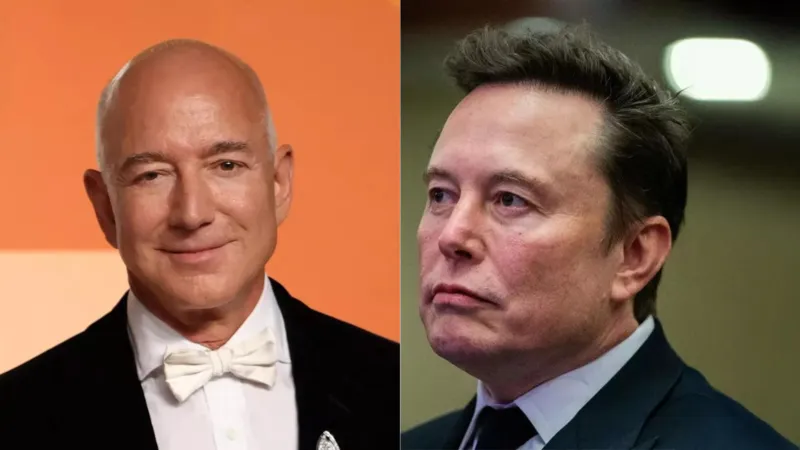Jeff Bezos Returns as CEO of AI Startup Project Prometheus

Jeff Bezos, the founder of Amazon, has taken on the role of co-Chief Executive Officer (co-CEO) at a new artificial intelligence startup named Project Prometheus. This marks his first formal leadership position since he stepped down as CEO of Amazon in July 2021. The startup has secured an impressive $6.2 billion in funding, a significant amount for a nascent company, with contributions coming from Bezos himself.
Co-leading Project Prometheus alongside Jeff Bezos is Vik Bajaj, a prominent figure in the technology field known for his previous work at Google’s experimental division, X. Bajaj has a background in physics and chemistry and has been involved in various innovative projects, including the health startup Verily.
Focus of Project Prometheus
As per reports from The New York Times, Project Prometheus aims to develop artificial intelligence solutions focused on the physical economy, specifically in engineering and manufacturing sectors such as aerospace and automotive industries. The startup has already begun operations and has recruited a team of over 100 employees, drawing talent from leading AI firms including OpenAI, Google DeepMind, and Meta.
The entrance of Project Prometheus into the AI sector comes at a time when competition in this field has intensified, particularly following the rapid advancements and public interest generated by generative AI technologies like ChatGPT. Major tech giants including Meta, Microsoft, and Google have significantly invested in AI, making it one of the most crucial battlegrounds in technology today.
Elon Musk's Reaction
Elon Musk, founder of the AI company xAI and a notable competitor in the AI space, reacted to Bezos's return to a leadership role with a dismissive comment on the social media platform X. Musk stated, "Haha no way," followed by a copycat emoji. This comment not only highlights the ongoing rivalry between Musk and Bezos but also underlines Musk's previous accusations of Bezos being a 'copycat' in various ventures, including space exploration and satellite technology.
Historically, this rivalry has included Musk's criticism of Amazon's plans to launch internet-beaming satellites, which would compete with his own company, SpaceX, as well as Musk's remarks regarding Amazon's acquisition of the self-driving car company Zoox to rival Tesla.
Future Implications
While specific details about Project Prometheus's operations remain sparse, Bezos's involvement suggests a continued interest in pushing the boundaries of technology, paralleling his ambitions with his aerospace company, Blue Origin. The startup's strategy to develop AI systems that learn from real-world applications, rather than relying solely on digital data, could provide a competitive edge in manufacturing and engineering.
As Project Prometheus embarks on its journey, the implications of its success or failure could reverberate throughout the technology sector, potentially influencing the direction of AI development and the competitive landscape among leading tech companies. With Bezos and Bajaj at the helm, the startup is poised to enter a highly competitive market, seeking to carve out its niche amidst established players like Google, Microsoft, and OpenAI.

UK Government Responds to MI5 Warning on Chinese Espionage Threats

Saudi Crown Prince Mohammed bin Salman Visits White House Amid Controversy

Sundar Pichai Warns of Risks in AI Investment Surge

Narayana Murthy Advocates 72-Hour Work Week, Sparks Health Concerns





